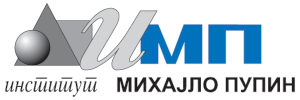
H2020 NEON – Next-Generation Integrated Energy Services fOr Citizen Energy CommuNities (2021-2024)
While building on results of recently (or soon to be) concluded EU projects, NEON will undertake coordination and support activities to advance the leveraging technologies and concepts in order to deliver the next-generation integrated energy services for communities, targeted to enhance the life quality of European citizens, while improving the performance of energy system. In this endeavour, NEON will exploit building energy efficiency, renewable energy generation and storage, and demand flexibility to increase energy savings, reduce CO2 emissions, and provide cost savings across sectors. NEON will engage grid stakeholders, service providers and final consumers to establish, in co-creation, the cross-sectoral arrangements and underlying service concepts. NEON will join multi-measure energy efficiency interventions and advanced control capabilities to maximize the positive impact of energy efficiency by improving the building operation performance and make the demand-side flexibility as manageable and procurable resource. NEON will advance the energy efficiency services already available on the market and couple them with other energy services and non-energy benefits, providing an integrated approach to energy generation, storage and consumption management. To enable servitization of proposed concepts, NEON will bring innovative business and contracting models by integrating EPC with P4P schemes, and establish innovative M&V methodology. The concept of Citizen Energy Communities (CECs), as introduced by Directive (EU) 2019/944, will be leveraged to set the legal and business foundations to enable faster market uptake, and facilitate communities, both residential and nonresidential, in becoming energy-efficient. The proposed service concepts and business models will be showcased in 4 CEC setups (residential, non-residential and mixed) serving as early adopters, whereby follow-up replication plans across 7 “follower” communities will be developed during the project.
Contact: Nikola.Tomasevic@pupin.rs
This project has received funding from the European Union’s Horizon 2020 research and innovation programme under grant agreement No 101033700.
